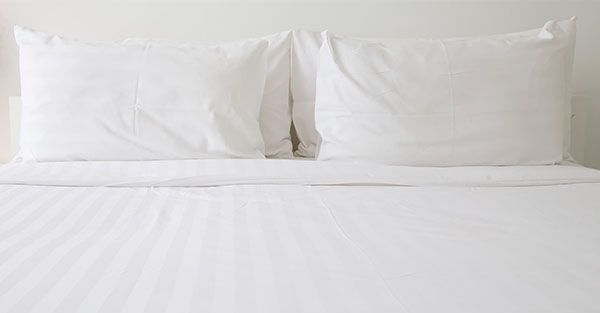
Does Sleep Really Matter?
By Tony D’Ovidio
Therapydia Portland Physical Therapist
Sleeping well is a challenge for many of us. Whether it’s our busy schedules, a love of Netflix, or a noisy neighborhood, modern life doesn’t make it easy to sleep well, and it can be especially difficult to sleep well when you have pain or an injury that is effecting your sleep. Unfortunately, poor or limited sleep can lead to more pain as well as several other health problems. Fortunately, there are steps we can take to improve our sleep and overall well-being.
Why do we sleep? How much do we need?
Sleep is our brain’s time to do it’s “housekeeping”. It’s when we consolidate our memories and clear out metabolic wastes. While other parts of our body can rest and recover during waking hours, the brain needs to sleep to perform these tasks – this is why it’s so essential. For adults age 18-65, the National Sleep Foundation recommends 7-9 hours of sleep. For children under 18, more sleep is recommended depending on age. Generally the younger the child, the more sleep is required. For adults over 65, 7-8 hours is recommended.
What happens if we don’t get enough?
Lots of bad things. Getting less than 5 hours of sleep per night is correlated with an increased risk of obesity, hypertension, diabetes, stroke, and heart attack. This is likely due to the negative effect sleep has on several hormones including leptin which tells our body that we’re satisfied when we eat. For people with musculoskeletal injuries, we know that less sleep can impair healing and increase the sensation of pain.
What can we do about it?
If you’re experiencing a sleep disorder, your best option is to seek out a sleep specialist. That said, there are plenty of things that you can do to improve your sleep starting tonight. The National Sleep Foundation recommends these 10 steps to improve your sleep hygiene.
- Stick to a schedule: This means going to bed and waking up at the same time, even on weekends.
- Practice a relaxing bedtime ritual: Your last hour or so before bed should be scripted and designed to avoid blue light-emitting devices and reduce stress before bedtime.
- Avoid naps if they inhibit sleep in the evening: Occasional napping is OK, but if you’re noticing difficulty falling asleep you may need to cut back. Naps late in the day are most likely to affect regular sleep.
- Exercise daily, but not within 3 hours before bedtime: Exercising regularly is a powerful tool to help improve your sleep, but exercise does have a stimulating effect on the body and can limit your ability to fall asleep if done 3 hours before bedtime.
- Keep your room cool and quiet: Design your bedroom to optimize for sleep. This means it should be dark, the temperature should be between 60-67 degrees, and it should either be quiet or you can use white noise if you prefer.
- Sleep in a comfortable position: This is the one physical therapists can help with the most. It starts with good pillows and a good mattress, but a physical therapist can help you to strategize what position is best for you, particularly if you have pain or an injury that’s limiting sleep.
- Manage light to manage your body’s rhythm: Ideally, you’re waking up to natural light. For those of us in the Northwest, we may have to cheat and use lights in our home for mornings in the winter.
- Avoid alcohol, cigarettes, and heavy meals late in the evening: There’s plenty of reasons to avoid cigarettes at all times, but they, along with alcohol and heavy meals, can limit your ability to fall asleep if used within a few hours of bedtime.
- Wind down before bed: This is the opposite of number 7. Avoid bright lights, particularly blue lights, for a few hours before bed. This means limiting screen time as much as possible, using blue-blocking screen filters or glasses, and using blackout curtains if needed in the summer.
- Only use your bed for sleep: The idea is to train your body to recognize that your bed is a place for sleep. Not reading, checking emails, playing games on your phone, etc.
You don’t need to make all these changes all at once to see improvements in your sleep. If you’re getting less than 7-9 hours of sleep each night, or feel like your sleep quality isn’t as good as you like, pick one or two that will work for you and start there. You can keep integrating all these tips into your daily routine as you go, and should sleep more and more soundly.
At Therapydia, we’re interested in treating you as a person, and sleep is an integral part of holistic health. If you’re experiencing pain or injury that’s limiting your sleep, or just need help reaching your fitness goals, Therapydia is here to help you.